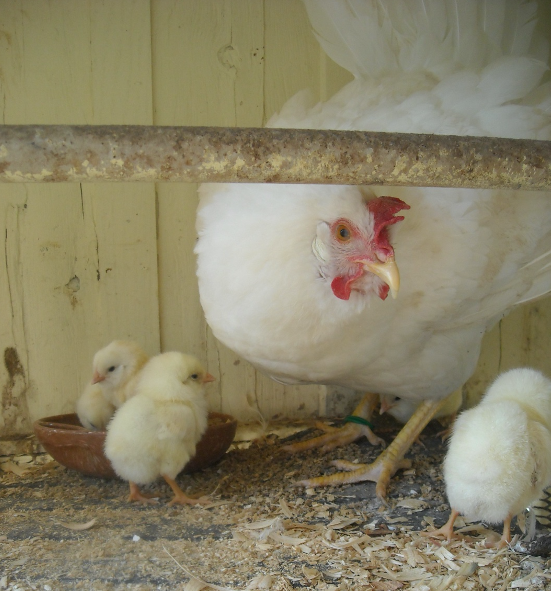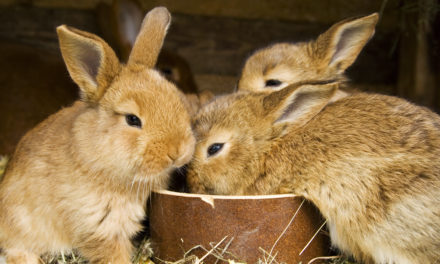It’s spring! Have any of your laying hens gone broody? Broody means that they are going to stay on their nests and hatch out some chicks. I hope you have a rooster, as it’s the one time he’s an essential part of the equation. Your hen needs some fertilized eggs. Did you know that if your rooster were to succumb to a predator that your hens would be able to continue to produce fertile eggs for up to one month? It’s because the hen has “sperm nest” areas located in her oviduct that collects and stores semen for later fertilization of eggs. The more I learn about poultry, the more impressed I am with the species.
The first thing you need to do when a hen goes broody is to determine if she is serious. This is especially true to a young hen who has never shown the trait before going broody. Isolate her and give her a nest with some false eggs or golf balls and see if she stays put. If she does, then you can give her some real eggs to set without wasting any.
Your hen is showing a classic sign when she has a glazed, fixed expression. She’s not getting off the nest and makes a loud commotion when you try to remove her from it. Another sign is getting her shackles up (the feathers on her back and neck). Now, it’s time to set up a nesting area.
In a different post, I go into detail about why you do not want to allow your hens to just hatch a clutch of eggs in the nesting box. I have just gone out to check on my broody hen, “Mommy,” a hen who lives to brood chicks. Since she has not been moved to the small coop I use for my broody hens and she is setting on eggs in the nesting box, I found her setting on the wrong nest! When she got off the nest for a drink, either another hen was in the box with her clutch of eggs or she forgot where they were. On this cold day, if I hadn’t happened to go out and check, the entire clutch would have been ruined because they were too cold, so all the developing babies would have died. The eggs were still warm, so I moved her back and saved the brood.
Always isolate the broody hen. That way, you can provide the best nutrition and protection for her from the rest of your flock. I use a small coop that I can move into my larger coop so that the other birds will not see Mommy as an interloper when I am ready to return her to the flock.
I make sure that my broody hen is healthy enough to withstand the rigors of the brood. A broody hen will only get off the nest once a day to drink, eat a little and relieve herself. If you start with a hen who is too thin or in poor health, she may starve to death while hatching her eggs. I had a Leghorn who went broody and did a great job with her first clutch. A month later, she went broody again and I didn’t realize that you should not allow such a thin chicken to go broody again since she had not recovered any weight from the first brood. She hatched her eggs, but shortly after that she dies of the stress of brooding a second clutch too soon. I still feel awful about her death. If I had been more knowledgeable, my Leghorn would still be alive. So please make sure your hen is plump enough before she starts brooding. Feed her scratch and hard-boiled eggs. Since she is not laying eggs, the scratch will give her more calories and the eggs will give her protein.
Move your hen at night after you set up a nesting coop. I line half of mine with cardboard and straw and give her a 4-6-inch-tall cardboard box filled with pine shavings, into which I have places the eggs that she will hatch. Always go with too few rather than too many eggs to set under your hen. If too many, they will get too cold and not develop, then the hen turns the eggs frequently, all the eggs will be moved to the outer cold area and perish. Go with fewer live chicks than all rotten eggs and no chicks!
Stay with your hen after you move her to see if she will calm down or stay upset and not sit on the new nest. If she is truly broody, she will settle down and sit on the nest. Now, all you have to do is give her fresh water and food each day, clean out her droppings (which will really stink) and wait for the baby chicks! Don’t forget to candle after the first week. Hope this was helpful. If you need any advice on chickens, you can contact any Buchheit store! Be blessed!
Ann May






